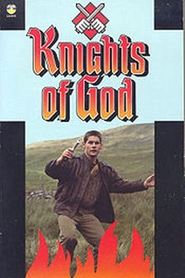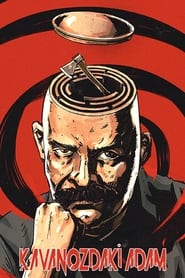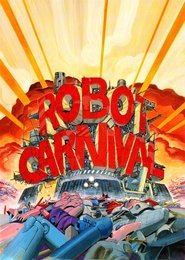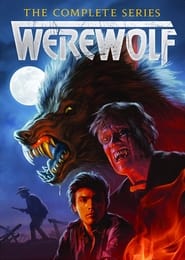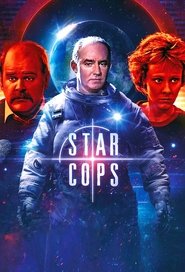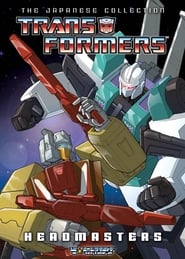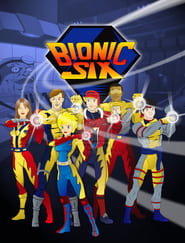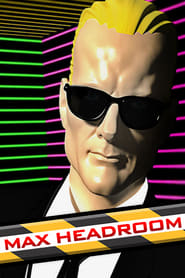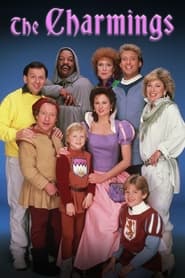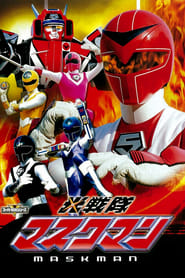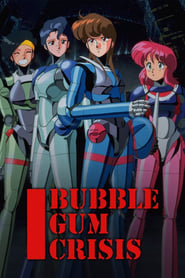New Sci Fi Fantasy TV Shows on Pantaflix - Page 366
-
Knights of God
1987
Knights of God
1987
star 5Knights of God was a British science fiction children's television serial, produced by TVS and first broadcast on ITV in 1987. It was written by Richard Cooper, a writer who had previously worked in both children's and adult television drama. Set in the year 2020, it showed a Britain ruled by the Knights of God, a fascist and anti-Christian religious order that came to power during a brutal civil war twenty years previously. It starred George Winter as Gervase Owen Edwards, the Welsh son of a resistance leader, and John Woodvine as the Prior Mordrin, leader of the titular cult. Patrick Troughton played Arthur, the apparent leader of the English resistance, and Julian Fellowes played Mordrin's ambitious and ruthless second-in-command, Brother Hugo. -
Uzaylı Zekiye
1987
-
The Man in the Jar
1987
The Man in the Jar
1987
star 7Famous writer Semih Serifoglu has a brain transplant. Then, his body and brain begin get to work separate from each other. -
凶靈大法師
1987
-
Puttsun Make LOVE
1987
-
Robot Carnival
1987
Robot Carnival
1987
star 6.7An anthology of various tales with robots being the one common element among them. It consists of nine shorts by different well-known directors, many of whom started out as animators with little to no directing experience. Each has a distinctive animation style and story ranging from comedic to dramatic story lines. -
Werewolf
1987
Werewolf
1987
star 8.6Eric Cord, a college student transformed into a werewolf undergoes a quest to rid himself of his curse by killing the apparent originator of his 'bloodline'. -
Star Cops
1987
Star Cops
1987
star 5.7Star Cops is a British science fiction TV series created by Chris Boucher, set in 2027 where the International Space Police Force (ISPF) maintains law and order in a newly colonized solar system, overseen by Commander Nathan Spring. Known for its hard science fiction approach and realistic portrayal of space travel, the series was canceled after one season due to poor ratings and production issues. Retrospectively, it has been critically reappraised. -
Transformers: The Headmasters
1987
star 7.6Following on The Return of Optimus Prime (and in place of The Rebirth), The Headmasters is the first Japanese-exclusive Transformers franchise. -
My Name is Jimmy
1987
My Name is Jimmy
1987
A family series about a group of children who suddenly find a robot called Jimmy. -
Alf liela w liela - El Talat Banat
1987
(Karima w Halima W Fatima) The series tells in a fun way the stories of One Thousand and One Nights, where in every episode Sherazade tells a new story or continues a story and the beginning of a new story until the king always listens to it and postpones the decision to get rid of it. -
Bionic Six
1987
Bionic Six
1987
star 6.5The title characters of the series are a family of machine-enhanced human beings possessing unique powers after being augmented with bionic technology, much like The Six Million Dollar Man and The Bionic Woman. Each family member is given specific bionic powers, and thus they form a superhero team named Bionic Six. -
Kimagure Orange Road
1987
Kimagure Orange Road
1987
star 6.7Kyosuke Kasuga, fifteen, moves to a new city and falls for Madoka Ayukawa. She's friendly when they're alone, but acts like a delinquent when in front of others. Kyosuke meanwhile struggles not to break the heart of Hikaru Hiyama, who fell in love after seeing him make an impossible basketball shot. To add the cherry to this particular sundae, Kyosuke and his family (sisters, grandfather, and cousins) all have various powers. And while Kyosuke's desperate to keep those powers a secret, his younger sisters (among others) aren't quite as concerned about it. -
Ultra B
1987
Ultra B
1987
star 10One night, Michio chases a UFO to see where it lands. He is taken inside it and encounters a mysterious baby, Ultra B. Soon reveals that he has superpowers when he moves in with Michio's family. -
Max Headroom
1987
Max Headroom
1987
star 6.8Television networks battle one another in an unrelenting ratings war. Whoever controls the airwaves controls the dystopic world in which they broadcast. So when Network 23's star reporter, Edison Carter, uncovers a deadly secret that could shake up the station's dominion over its viewers, the only option is to eliminate Carter before he can make his story public. After Carter's "accident," his mind is uploaded to create the world's first self-aware, computer-generated TV host — Max Headroom! But will Max bow to his creators? Or will he be the key to his human alter ago bringing down a network superpower? -
The Charmings
1987
The Charmings
1987
star 4.8The Charmings is an American fantasy sitcom that aired from March 1987 to February 1988 on ABC. Based on the fairy tale Snow White, it chronicles Snow White and Prince Charming after they are transported in time from the Enchanted Forest to the 20th Century Los Angeles suburbs. -
Super Android Metalder
1987
star 8.6Choujinki Metalder is the sixth and shortest entry of the Metal Hero Series, running from March 16, 1987, to January 17, 1988, for only 39 episodes. It was the first series to air on Sundays instead of Mondays. Metalder bears many similarities to Toei's earlier program Android Kikaider, particularly in its themes, characters, and the hero's costume design. The action footage of Metalder was adaptated for the first two seasons of VR Troopers. On February 21, 2007, Toei released the complete Metalder TV series and film on a seven-disc DVD set. For distribution purposes, Toei refers to this television series as Metalder. -
Twilight Q
1987
Twilight Q
1987
star 6.5A Knot in Time — Reflection — Mayu found a camera floating in the ocean while she was on vacation. A very unusual camera. The film, mostly intact, reveals a picture of herself with a man she has never seen before. But that is not all. The unusual part is that this camera has not been made yet... and will not be made for another two years. And soon, Mayu finds herself swinging uncontrollably back and forth through time like a pendulum... Mystery Case — File 538 — A down-on-his-luck detective accepts the first case to come his way: surveillance of a man and a little girl. But who are they? And why do aeroplanes that fly over them turn into giant imperial carp? An investigator's normal methods do not apply when reality itself no longer applies... -
Hikari Sentai Maskman
1987
star 8.1Commander Sugata discovered the existence of the Royal Underground Empire Tube, a malignant force that desires to dominate the land, which is based underneath Japan. He recruits five young people, each one specializing in a style of martial arts, and teaches them in the ways of the mystical "Aura Power" energy. A year after he recruited and trained the Maskmen, Tube is ready to strike. -
Bubblegum Crisis
1987
Bubblegum Crisis
1987
star 7MegaTokyo 2033: Tokyo was left flattened as a result from a great earthquake. A new city, MegaTokyo, was then recreated due in no small part from the aid of a multi-million dollar company, Genom Corp. Genom created and mass-produced biomechanical creatures called Boomers to aid in the restoration of MegaTokyo. When the Boomers began to run out of control, the ADPolice at first tried to stop them, but they proved to be far more difficult to deal with than was first imagined. Under the ever looming Boomer threat, a group of four girls from varying degrees of society banded together. Calling themselves The Knight Sabers, they were the only ones with enough firepower and resourcefullness to defend the fledgling MegaTokyo from Genom and it's berserk Boomers.
 Netflix
Netflix
 Amazon Prime Video
Amazon Prime Video
 Apple iTunes
Apple iTunes
 Apple TV Plus
Apple TV Plus
 Disney Plus
Disney Plus
 Google Play Movies
Google Play Movies
 Paramount Plus
Paramount Plus
 Hulu
Hulu
 HBO Max
HBO Max
 YouTube
YouTube
 fuboTV
fuboTV
 Peacock
Peacock
 Peacock Premium
Peacock Premium
 Amazon Video
Amazon Video
 The Roku Channel
The Roku Channel
 AMC+
AMC+
 Kocowa
Kocowa
 Hoopla
Hoopla
 The CW
The CW
 Vudu
Vudu
 Starz
Starz
 Showtime
Showtime
 PBS
PBS
 Pantaflix
Pantaflix
 FXNow
FXNow
 Tubi TV
Tubi TV
 Kanopy
Kanopy
 Comedy Central
Comedy Central
 Crunchyroll
Crunchyroll
 Microsoft Store
Microsoft Store
 Redbox
Redbox
 Sun Nxt
Sun Nxt
 ABC
ABC
 DIRECTV
DIRECTV
 Crackle
Crackle
 Fandor
Fandor
 Plex
Plex
